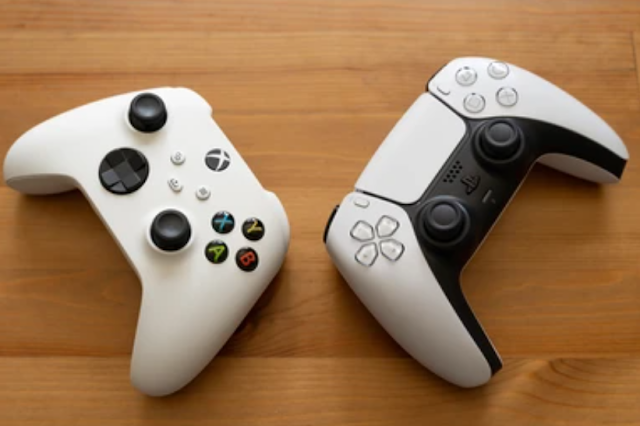PlayStation 5 vs. Xbox Series X: Battle of the Next-Gen Gaming Consoles
The gaming industry has been abuzz with excitement as Sony's PlayStation 5 and Microsoft's Xbox Series X compete for the title of the ultimate next-generation gaming console. With powerful hardware, immersive experiences, and groundbreaking features, choosing between the two can be a tough decision for gamers. In this article, we will compare the PlayStation 5 and Xbox Series X, exploring their key features, gaming libraries, and overall performance to help you decide which console reigns supreme in the battle of the next-gen gaming consoles.
Hardware and Performance
Both the PlayStation 5 and Xbox Series X boast impressive hardware specifications, delivering a significant leap in processing power and graphical capabilities. The PlayStation 5 features a custom AMD Zen 2 CPU and RDNA 2 GPU, along with a lightning-fast SSD, offering fast load times and seamless gameplay. The Xbox Series X, on the other hand, showcases a similar AMD Zen 2 CPU and RDNA 2 GPU architecture, combined with a custom NVMe SSD for enhanced performance.
In terms of raw power, the Xbox Series X has a slight edge with its higher teraflop count and greater GPU compute units. However, both consoles deliver stunning visuals with support for ray tracing technology, high frame rates, and resolutions up to 4K and even 8K. Ultimately, the performance differences between the two consoles may vary depending on specific game optimization and individual preferences.
Gaming Libraries and Exclusives
One crucial aspect to consider when choosing a gaming console is the available gaming library and exclusives. Sony's PlayStation 5 is known for its strong lineup of exclusive titles, such as "Spider-Man: Miles Morales," "Ratchet & Clank: Rift Apart," and "Demon's Souls." These games, developed by Sony's in-house studios, offer immersive storytelling, stunning graphics, and unique gameplay experiences that are tailor-made for the PlayStation platform.
Microsoft's Xbox Series X, on the other hand, has been focusing on building a robust ecosystem with its Xbox Game Pass subscription service. The Game Pass offers a vast library of games, including first-party titles, older classics, and third-party offerings. Microsoft's acquisition of Bethesda Studios further bolsters the Xbox Series X's exclusives lineup, with highly anticipated titles like "Starfield" and "The Elder Scrolls VI" in the pipeline.
Backward Compatibility and Cross-Platform Support
Both the PlayStation 5 and Xbox Series X offer backward compatibility, allowing players to enjoy games from previous console generations. The PlayStation 5 supports an extensive library of PlayStation 4 titles, while the Xbox Series X goes even further by offering backward compatibility with select Xbox, Xbox 360, and Xbox One games. This feature allows players to revisit their favorite titles and ensures a smoother transition to the new generation.
In terms of cross-platform support, Xbox Series X has an advantage with its commitment to Xbox Play Anywhere, allowing players to access their games across Xbox consoles and Windows 10 PCs. Additionally, Microsoft's Smart Delivery feature ensures that players receive the best version of a game, tailored to their specific console.
User Experience and Features
The user experience and additional features of the PlayStation 5 and Xbox Series X contribute to the overall gaming experience. The PlayStation 5 introduces the DualSense controller, which offers haptic feedback and adaptive triggers, enhancing immersion and tactile sensations. Sony's user interface focuses on simplicity and intuitive navigation, with seamless integration of social features and media apps.
The Xbox Series X features the redesigned Xbox Wireless Controller, maintaining familiarity while introducing subtle improvements. The user interface emphasizes accessibility, customizable home screens, and extensive social and community features. Microsoft's Xbox Game Pass subscription provides access to a vast library of games, cloud gaming, and exclusive perks, expanding the gaming experience beyond traditional console boundaries.
Conclusion
Choosing between the PlayStation 5 and Xbox Series X depends on individual preferences, gaming libraries, and desired experiences. The PlayStation 5 stands out with its strong lineup of exclusive titles and innovative DualSense controller, offering immersive gaming experiences. Meanwhile, the Xbox Series X appeals to players seeking a broad gaming ecosystem, extensive backward compatibility, and services like Xbox Game Pass.
Consider factors such as hardware performance, exclusive titles, backward compatibility, and the overall user experience when making your decision. Ultimately, both the PlayStation 5 and Xbox Series X deliver impressive gaming capabilities, showcasing the exciting advancements in the next generation of gaming consoles.











